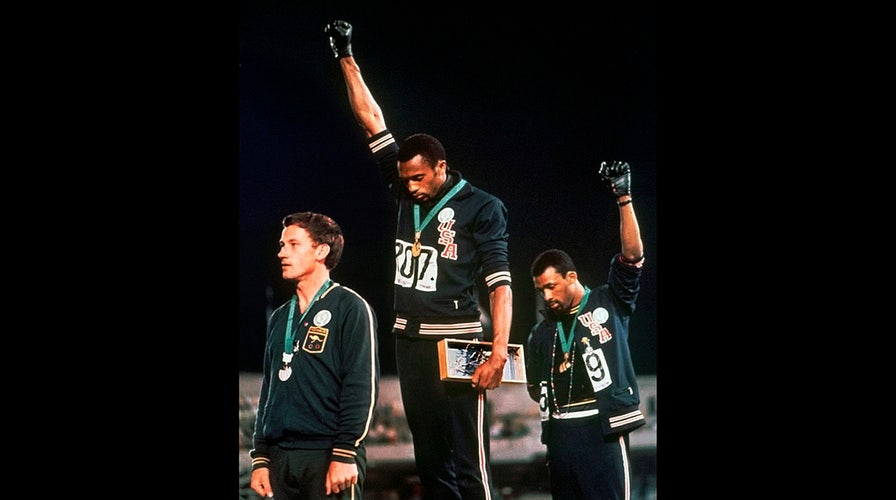Fox News Flash top headlines for March 30
Fox News Flash top headlines are here. Check out what's clicking on Foxnews.com.
The U.S. Olympic and Paralympic Committee (USOPC) released a nine-page document Tuesday giving athletes competing for spots on the national teams ideas about what is an acceptable form of protest during the trials.
The "racial and social demonstrations" that are allowed include holding up a fist, kneeling during the national anthem and wearing hats or face masks with the phrases "Black Lives Matter," "equality" or "justice" on them, according to the USOPC. Hate symbols, as defined by the Anti-Defamation League, are not allowed, nor are actions that would impede others competing in a particular event, including laying down on a playing surface.
CLICK HERE FOR MORE SPORTS COVERAGE ON FOXNEWS.COM
The USOPC said any demonstration that takes place should involve "advancing racial and social justice; or promoting the human dignity of individuals or groups that have historically been underrepresented, minoritized, or marginalized in their respective societal context."
The organization added that while it will not penalize athletes for many actions, it cannot "prevent ... third parties from making statements or taking actions of their own, and that each Participant must make their own personal decision about the risks and benefits that may be involved."
The athletes could be subjected to penalties from the International Olympic Committee (IOC). The IOC’s Rule 50 states "no kind of demonstration or political, religious or racial propaganda is permitted in any Olympic sites, venues or other areas." However, the IOC is in its own review.
US MEN'S SOCCER MISSES OUT ON OLYMPICS FOR THIRD STRAIGHT TIME WITH LOSS TO HONDURAS
"I have confidence you’ll make the best decision for you, your sport and your fellow competitors," USOPC CEO Sarah Hirschland said in a letter to athletes.
Race Imboden knelt on the podium during the Pan American Games in August 2019. The USOPC put him on a 12-month probation.
John Carlos and Tommie Smith both raised their fists in protest during the 1968 Mexico City Games. Both athletes were reprimanded by the IOC and were removed from the games. Since then, Carlos has called for the abolition of the rule that bans protests at the games.
CLICK HERE TO GET THE FOX NEWS APP
The USOPC said in December it wouldn’t punish athletes who violated the IOC’s Rule 50.
The Associated Press contributed to this report.

